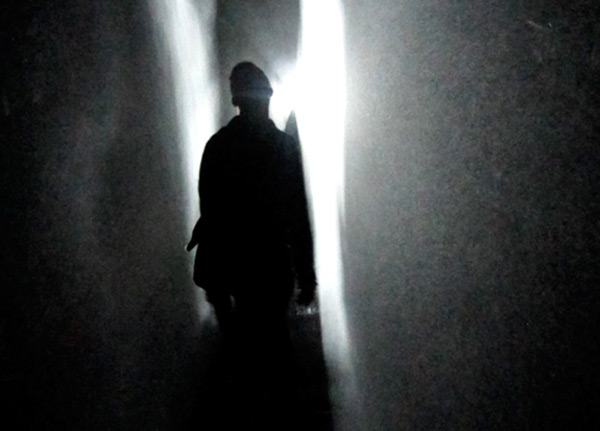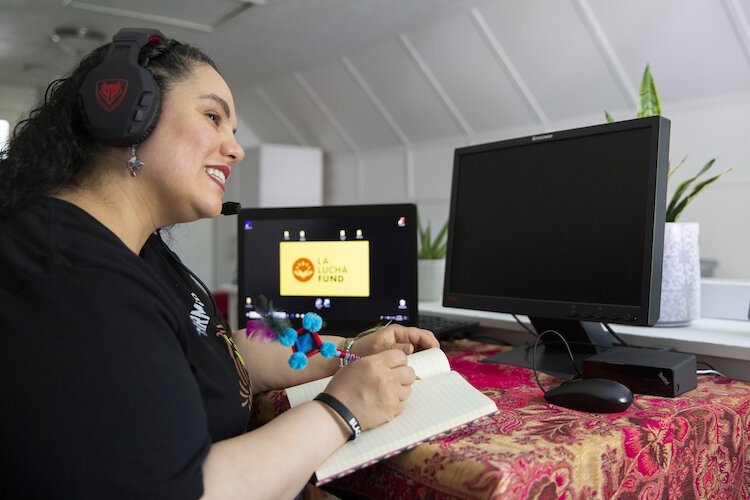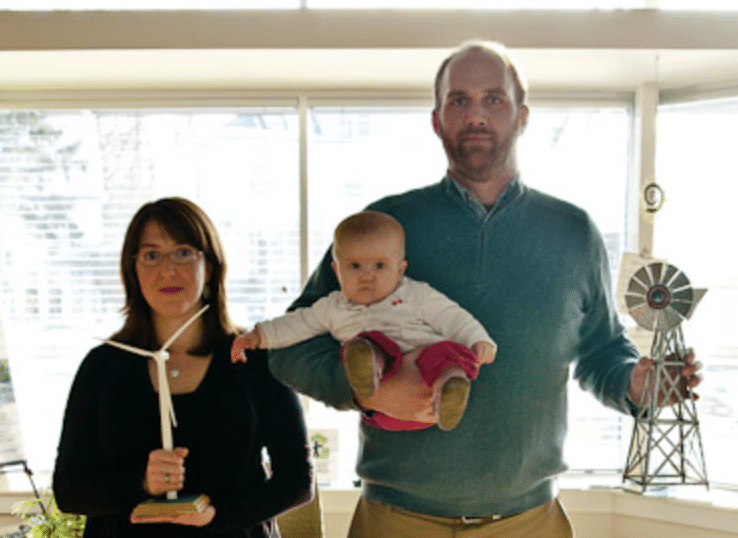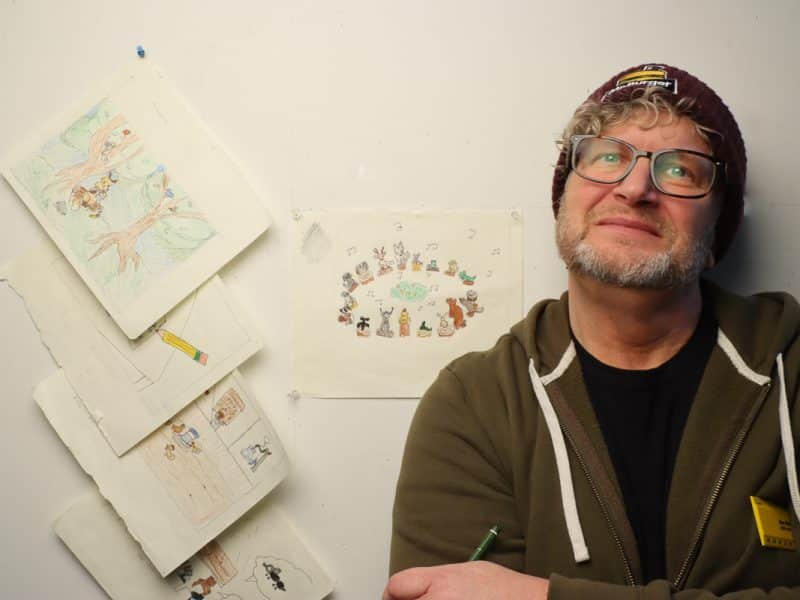G-Sync: The Future Needs All of Us
Each week G-Sync's Lifestyle Editor Tommy Allen signs off with "The Future Needs All of Us" but what does it mean if we leave some behind or out of the equation. G-Sync goes to the board to do perform some math.

On Oct. 5, Michigan State House Representative Thomas McMillan of Rochester introduced Bill #5039 with language so cruel that enactment would trickle down to strip every LGBT citizen of protections enacted anywhere in our state including Kalamazoo, Detroit, Lansing and Grand Rapids.
You can almost hear certain citizens of Holland breathe a sigh of relief because their decision to deny civil rights to local LGBT citizens after a year-long study deemed otherwise (and after months of community-led testimonies demanding more) would be completely negated should this bill ever get out of the judiciary committee at the state capitol.
In a state vitally concerned about remaking their image, we have to ask ourselves what is happening here when we promote, rather than denounce, such discriminatory acts. This type of behavior is contrary to the formula outlined by scientists as essential for the recovery of our economy.
One could almost say that the unwritten values that drive Grand Rapids time and time again to be a leader in areas of innovation and social justice is the idea that “…injustice anywhere is a threat to justice everywhere.” Those words by Dr. Martin Luther King, Jr. pack just as much power today as they did then, and they cut across many platforms.
What we discover as we watch intolerance happen here in Holland is that it does not stay in Holland, because the national press is reporting on the story.
Last week alone, the recent Rapidian article about Until Love Is Equal’s struggles to promote equality in Holland over the past few months became the second most widely shared piece in the history of this publication, second only to the Newsweek piece about Grand Rapids being a dead city.
Grand Rapids is aware and is very much concerned about equality and how it impacts our region, but the lack of equality either hurts or promotes the wellbeing of all in our community.
As we watch the nightly news, we know that since 2008, the economic recovery has been a fragile one. It is a concern to many in our area, but it is also the fuel behind the dissatisfaction of many groups, from the Tea Party to the Occupy Wall Street movement.
And if we are in a process of remaking our economy as Creative Class champion Richard Florida has suggested over the past decade, then our ability to attract and retain talent by creating a welcoming climate in our communities is what is desperately needed right now. Shouldn’t it be a given that we do not need a culture of divide and conquer by denying civil rights protections to LGBT citizens?
In his books and after years of study about the creative class, Florida has addressed the issue of why we need to continue to be more open going forward.
Florida has said, “Places that value people, that are more meritocratic, they’re going to attract more people with skill and ambition and entrepreneurial verve.
“So, places that allow you to do that, that activate that, that allow you to mobilize resources, they’re also the places that are going to gain an upper edge in the entrepreneurial and innovative realm.”
Michigan is a place where we have a long history of being innovative and for being leaders in our region. So we know that if we seek to maintain or grow that leadership, we must continue to put in place best practices, not hateful roadblocks like those in Holland and now circulating in Lansing’s legislative chambers.
Florida has often acknowledged the work of the University of Michigan’s Scott Page whose book, The Difference: How the Power of Diversity Creates Better Groups, Firms, Schools, and Societies, argues the point that if a place wants to innovate new ideas or promote big developments, then we need cognitive diversity. We need to be aggressive about being open, about not allowing anyone from a city commissioner to a state representative to stand in the way of making our state more welcoming.
Page discovered in his book that diversity yields superior outcomes for a region and, in this case, our state will benefit from that diversity. Yet there are many detractors who will say that this is all touchy-feely science, when actually Page asserts that it can be tracked with science.
You know the stuff that keeps grandma’s heart ticking and makes your food taste so good when applied correctly? It is science working, and it is the basis of our lives. The same is true when it comes to creating the right place for innovation to blossom.
Page has referenced Loyola University’s economist Lu Hong, whose model showed mathematically that diversity could catapult such an equation into desired results.
Lu Hong’s model, often used to predict financial markets and voting patterns, can also illustrate that those diverse groups of problem solvers will outperform other less tolerant, closed groups.
Diverse groups according to Lu Hong, because of their access to a wide swath of data and, in this case, experience or background, got hung up less often in the pursuit of the solution than the closed group of individuals who tended to think the same way.
And how does Lu Hong write this equation? Simple. Collective Accuracy = Average Accuracy + Diversity.
The science shows what I have been saying for years here in Rapid Growth: The Future Needs All of Us.
And in this case, Michigan representatives of all the people need to stop wasting our time with these divisive tactics employed at will to our diverse populations if we hope to move forward as a state.
In Holland, they have had all the data they need to create a welcoming place, something they do on a regular basis for companies all the time as they hand out variances and tax breaks to attract new and innovative businesses to their region.
But extending basic rights to LGBT citizens in the areas of housing and employment will be directly related to the recovery and reinvention of our region. To argue otherwise is to do so at our own peril, both as a region and as a state. The time for being silent is over.
I have not used the h-word, but could it be that at the core of the Holland issue, after all the data and presentations were made, that what is at work here is something that others have never dared to say aloud?
Could it be that homophobia is really what is at work in Holland?
I tend to think the best of everyone, and maybe that is a fault, but after months of testimony about the negative affects of current policy followed by watching members of the Holland City Council dig their heals in the ground against passage, something that so many other cities around the country have adopted — well, if it walks like a duck, then it’s a duck.
“Homophobia is like racism and anti-Semitism and other forms of bigotry in that it seeks to dehumanize a large group of people, to deny their humanity, their dignity and personhood,” said Coretta Scott King, wife of Dr. Martin Luther King, Jr. “This sets the stage for further repression and violence that spread all too easily to victimize the next minority group.”
So, the next time someone makes a disparaging comment about a group of Americans in your community whether it be a gay, African American, Hispanic, Jew, Muslim, or woman, just calmly reply asking them which train out of town you should get on.
Because when you start to erode the most basic protections of access to employment and housing to any group of people, then it is clear to me that what is being advocated is the desire for that group to leave the region. What other option is there when basic civil rights are being denied?
Holland has had months to figure this out since the June vote to deny civil rights to LGBT citizens. A yearlong study of the housing and employment issues passed with the unanimous recommendations from their civil rights committee to the Holland City Council urging them to pass the ordinance. Instead, the council voted 5-4 to deny these rights.
If the stain of Holland’s intolerance continues to spread beyond that city, then the vision of diversity and tolerance that Grand Rapids and other localities have promoted will no longer matter. Grand Rapids and San Francisco both passed their protections for their LGBT citizens in 1994, making them the 10th and 11th cities in the country to do so. We have a long history of doing the right thing when all others said no. Our legacy is what many hope to attach their gains to in the future, but you cannot come to GR and oppress the rights of our citizens. We simply will not stand for it here.
The stubborn inhumanity being preached from the chambers of Holland’s City Hall and the recent introduction of House Bill No. 5039 by Representative McMillin will grow like a cancer, eventually spreading toxic intolerance throughout Michigan. Can this be the message we want to proclaim from our state?
If you want to retain talent in this state and in our region, we must not only be seen as welcoming, but back it up with real action. At this point, anything less than a 100% approval in Holland on this ordinance is an insult to the lives of all Americans who have fought for freedom and equality.
It is time for those who view themselves as outsiders (and there are many of us) to demand more of our neighbors whose actions are not only reckless for our economic recovery, but whose intolerant behavior is a contradiction of the Founding Fathers’ clear vision of equality for all citizens.
The Future Needs All of Us (to advocate for liberty and justice for all)
Tommy Allen, Lifestyle Editor
Email: RapidGSync@gmail.com
Click here to continue to this week’s G-Sync events.
Press Releases for upcoming events in the West Michigan area should be sent to TommyRapidG@gmail.com. Please include high res jpg images that are at least 500 pixels wide.









